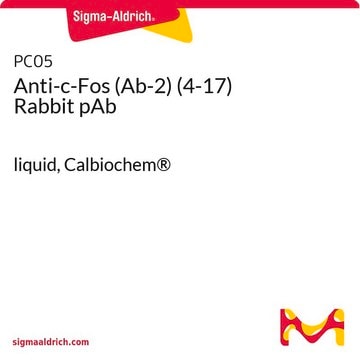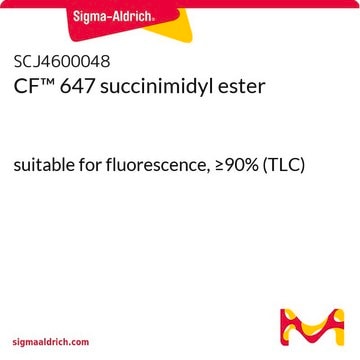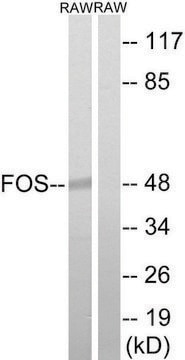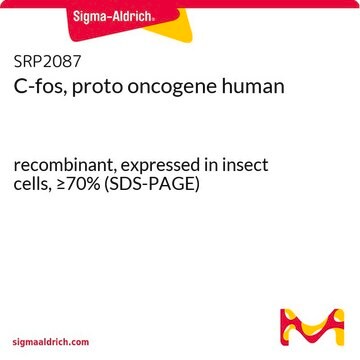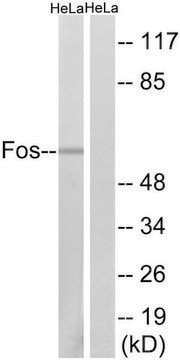F7799
Anti-c-Fos antibody produced in rabbit
IgG fraction of antiserum, buffered aqueous solution
Synonym(s):
C-Fos Antibody, C-Fos Antibody - Anti-c-Fos antibody produced in rabbit
About This Item
Recommended Products
biological source
rabbit
Quality Level
conjugate
unconjugated
antibody form
IgG fraction of antiserum
antibody product type
primary antibodies
clone
polyclonal
form
buffered aqueous solution
mol wt
antigen 50-60 kDa
species reactivity
human
packaging
antibody small pack of 25 μL
technique(s)
immunohistochemistry (formalin-fixed, paraffin-embedded sections): 1:5,000 using human colorectal carcinoma tissue
western blot: 1:1,000 using nuclear extract of a phorbol ester-treated human A431 cells or nuclear extract of human A431 cells
UniProt accession no.
shipped in
dry ice
storage temp.
−20°C
target post-translational modification
unmodified
Gene Information
human ... FOS(2353)
General description
Immunogen
Application
Anti-c-Fos antibody produced in rabbit has been used in immunoassays to determine the c-fos immunoreactivity in spinal cord sections. It has been used in Immunohistochemistry.
It may be used as a probe to determine the presence and roles of c-Fos in a wide variety of cell processes including cell proliferation and differentiation, and responses to cell damage or stress.
Biochem/physiol Actions
Physical form
Disclaimer
Not finding the right product?
Try our Product Selector Tool.
recommended
Storage Class Code
10 - Combustible liquids
WGK
WGK 3
Flash Point(F)
Not applicable
Flash Point(C)
Not applicable
Certificates of Analysis (COA)
Search for Certificates of Analysis (COA) by entering the products Lot/Batch Number. Lot and Batch Numbers can be found on a product’s label following the words ‘Lot’ or ‘Batch’.
Already Own This Product?
Find documentation for the products that you have recently purchased in the Document Library.
Customers Also Viewed
Our team of scientists has experience in all areas of research including Life Science, Material Science, Chemical Synthesis, Chromatography, Analytical and many others.
Contact Technical Service


